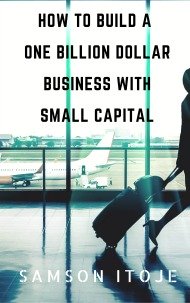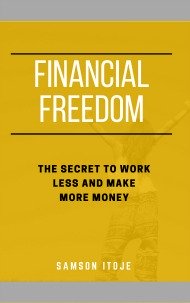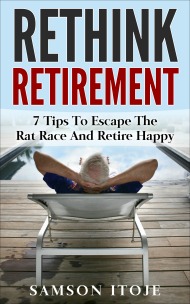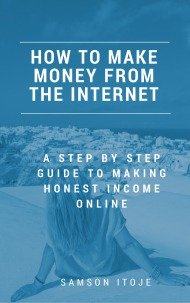Investment For Retirement :: Agent Training :: Retire Rich
Employer Versus Employee Mindset - One Simple Change That Can Make You Wealthy
by Samson Itoje
There is a huge difference between an employer and an employee.
There is a fundamental difference between someone who will turn out to be an employer of labour and someone who will be an employee all his life.
Some people think the difference is luck. But that is not true.
In fact, you can tell with a measure of certainty an employee who will eventually become an employer of labour and another employee who will remain an employee for life simply by having a short conversation with both of them.
So, what is the major difference between people who turn out to be employees for life and those who turn out to be employers of labour?
The difference is their mindset.
The Employer Mindset - Ownership of The Means of Production No Matter The Challenges
People who turn out to be employers of labour desire to own the means of production. They desire to be the founder and CEO of their own company.
They desire to create a system that manufactures or sells the products or services they desire . . . products or services that solves a problem or fills a need in the market.
Employers of labour tend to be problem solvers and innovators. And they want to own the corporation that solves the problems they identified so they can profit from the solutions they proffer through the corporation they established.
Employers of labour see problems as opportunities to create a solution different from those already available in the market.
They recognize that by helping people solve their problems, they create a system that could attract thousands of first time purchases and, thereafter, thousands of repeat purchases.
They believe that their invention could eventually bring in a flood of purchases that could make them multi-millionaires (or even billionaires) doing what they love to do.
Employers of labour have tremendous confidence and faith in their inherit ability to find a solution for problems for which no previous solution exist.
For example, there was a time when telephones, automobiles, airplanes, electricity etc didn't exist. And yet, many innovators were willing to attack the problem in search of solutions even though none existed at the time.
Bottom line.
Employers of labour (and would-be employers of labour) have unwavering commitment to create a company of their own. And they will not stop until they create a successful business even if it means failing over and over again with different business ideas.
Yes, the typical employer of labour says to himself, "Yes, I can!" irrespective of the challenges he currently faces.
Guess what.
He will eventually succeed in perfecting his business idea and turning a profit, if he refuses to quit. And once he gets a breakthrough, he then employs more people or diversify the business to make even more money.
This is not luck.
The positive results employers of labour eventually get is a combination of self-belief, willingness to suffer loss in search of a greater good, unwavering commitment and dogged determination.
The best part is this . . . the opportunity for business success is open to anyone who dares without flinching.
The Employee Mindset - "I Want A Regular Salary With Benefits"
Employees everywhere in the world have a common defining mindset or attribute: They want a stable job with consistent salary, job security and benefits.
People with the employee mindset do not want the headache of starting a business, which could fail or succeed. They do not want the stress of selling or the hunger associated with zero or poor sales.
They just want a steady salary paid to their salary account every month, no matter how small the salary is.
People with employee mindset always see problems with any business opportunity presented to them because they are just not interested.
People with the employee mindset are constantly in search of jobs with a bigger salary and better remuneration package.
In fact, their minds are so closed to other ways of making money that they are willing to cut off anyone on their friends list who is constantly talking about business and investing.
People with the employee mindset just want a better job with a more lucrative remuneration package.
So, what do this group of people do when they actually get a better job with a more lucrative remuneration package?
With a better job in hand . . .
>> They buy a bigger car
>> Rent a bigger apartment and
>> Generally buy more liabilities which they erroneously classify as assets.
Thereafter, they take countless photographs of their new expensive "toys" and share with friends on social media.
These friends in their social circles them celebrate them for "making it".
Guess what.
The years roll by pretty fast as these employees are having fun.
Suddenly, they discover they have worked for 30 years with nothing concrete to show for all of the salaries they have earned over the years.
Then they begin to scramble around looking for retirement planning guide (or retirement planning experts) to help rescue their messy situation.
The end result?
Many of these employees, who once had the appearance of being rich because of their fat salaries, suddenly fall into poverty less than 10 years after retirement.
What a waste of inbuilt intelligence and decades of formal education!
Do not fall for the same trap.
Free yourself from this employee mindset disease which eventually leads to poverty after retirement.
How do you do that?
Make one simple change that has the potential to transform your life from ordinary to extraordinary.
Dump the employee mindset and embrace the employer mindset (along with all the challenges and sleepless nights that come with it).
Embrace entrepreneurship while still in paid employment.
Establish your own corporation (or limited liability company) and become an employer of labour just like me.
This is the sure path to guaranteed retirement income and a wonderful retirement life.
In fact, this is the number one recommendation of this premium retirement planning guide (selfmaderetiree.com) and Samson Itoje, CEO of Erimama Investment Company Limited.
Go for it. Thank me later.
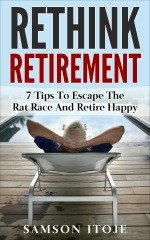
FREE 7-Day E-Course: Rethink Retirement - 7 Tips To Escape The Rat Race And Retire Happy
Simply enter your email in the box below and click subscribe
Follow Us On:
Recent Articles
-
Real Estate Agent Training Nigeria - Earn Extra Income As A Realtor
May 21, 19 08:38 PM
Real estate agent training in Nigeria for anyone who desires to make money part time or full time from the Nigeria property market. Realtor training manual for novices and estate agents. Get the skill… -
Real Estate Investing Opportunity Lagos Nigeria - Make More Money
Mar 17, 19 08:16 PM
Real estate investing opportunity in Lagos Nigeria. High return on investment land for sale in Lagos. Buy now. Make more money from your property investment. -
Sales Leads Software Nigeria - Lead Generation And Marketing App
Mar 16, 19 06:54 PM
Sales leads software for marketing and sales automation. Facebook messenger lead generation, follow-up and conversational selling software. Guaranteed high conversion rate and increased sales.



